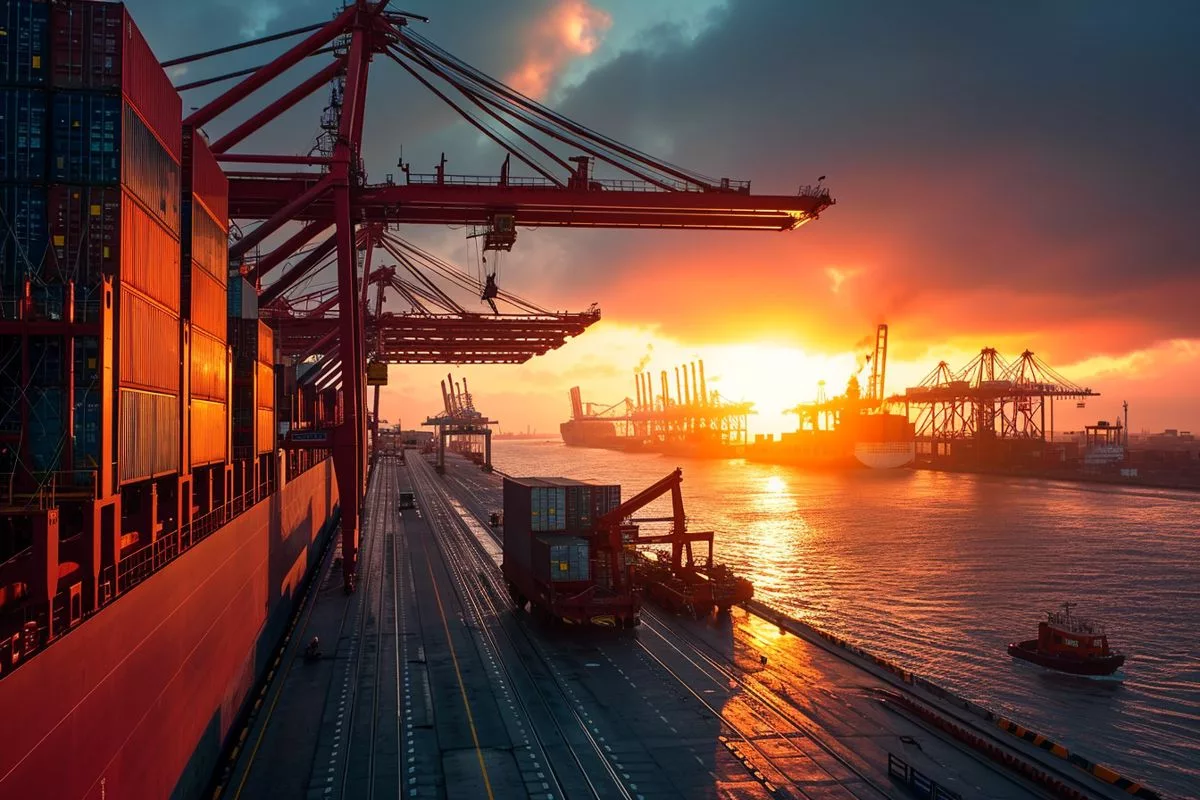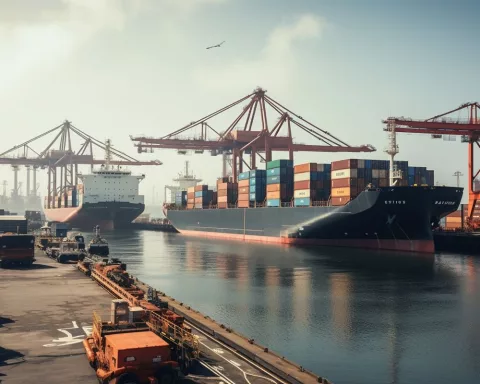Cape Town’s port is facing significant operational inefficiencies and a loss of appeal that jeopardizes its productivity and international reputation, leading to demands for private sector participation in port operations. The potential advantages of involving the private sector include an additional R6 billion in exports, around 20,000 direct and indirect employment opportunities, and over R1.6 billion in extra tax revenue over five years. The restoration of Cape Town’s port is crucial for paving a sustainable path for growth and development in Cape Town, and the city is urging the federal government to define a concrete timeline for private sector engagement.
Urgent Action Required: Reviving Cape Town’s Port through Private Sector Partnership
Amid significant operational inefficiencies and dwindling appeal, Cape Town’s city administration encourages private sector participation in Port of Cape Town operations. Seeking strategic collaboration with the private sector, the potential advantages include an additional R6 billion in exports, approximately 20,000 direct and indirect employment opportunities, and over R1,6 billion in extra tax revenue over five years. The restoration of Cape Town’s port is crucial for paving a sustainable path for growth and development in Cape Town.
Cape Town’s Port Crisis
Cape Town, Africa’s glittering pearl, is at a pivotal crossroad. Its once thriving port, a historic epicenter of global commerce and pivotal economic propeller for the city, now confronts issues that jeopardize its productivity and international reputation. Amid these urgent issues, Cape Town’s city administration encourages private sector participation in [Port of Cape Town](https://capetown.today/reinvigorating-cape-town-port-through-private-sector-engagement/) operations.
James Vos, the Mayoral Committee Member responsible for Economic Growth, spearheads this movement, imploring the federal government to define a concrete timeline for private sector engagement. His appeal is born out of numerous instances of significant operational inefficiencies at the Port of Cape Town, which have begun to tarnish the city’s reputation as a top maritime passage.
Exacerbating this critical situation is a significant shipping corporation’s recent decision to bypass the Port of Cape Town. This development, a clear indicator of the port’s dwindling appeal, has sent shockwaves through the city and economic circles, sparking demands for immediate reformation.
Seeking Private Sector Collaboration
In contrast to the government’s secretive handling of the Freight Logistics Roadmap, the city is actively rallying stakeholders, including the private sector, to pressure the government into providing clear schedules and timelines. Such strategic collaboration with the private sector is viewed as a pivotal move to rejuvenate the port, and by extension, stimulate the city’s economy.
The World Bank’s recent report served as a wake-up call. Ranked 344 out of 348 ports in the global container port performance index for 2022, Cape Town’s position underscores the seriousness of the predicament. It highlights the pressing need for the national government to take determined action.
The potential advantages of involving the private sector are considerable. Research by the Western Cape’s Department of Economic Development and Tourism suggests that private sector engagement could yield an additional R6 billion in exports, generate approximately 20 000 direct and indirect employment opportunities, and create over R1,6 billion in extra tax revenue over five years.
Overcoming Technical Challenges and Looking Ahead
The port’s ongoing technical issues are a substantial problem that its manager, Rajesh Dana, has addressed. However, the city is of the belief that real productivity can only be achieved when the private sector directly participates in managing port operations. The participation of the private sector is anticipated to bring expertise, knowledge, tactics, and innovation to the table, thereby contributing to effective problem resolution.
The city recognizes the domino effect that logistical hurdles at the port create on the broader economy, underlining the state’s urgency in tackling the issue. The city remains committed to nurturing successful cooperation between the national government and private companies, capitalizing on each other’s capabilities and resources.
The restoration of Cape Town’s port is not solely about improving a maritime facility, but about paving a sustainable path for growth and development in Cape Town. Therefore, the appeal for private sector participation is actually a call for a resilient, flourishing Cape Town that is prepared to re-establish its status as one of the globally competitive maritime hubs.
1. What is the issue facing Cape Town’s port?
Cape Town’s port is facing significant operational inefficiencies and a loss of appeal that jeopardizes its productivity and international reputation.
2. Why is private sector participation necessary in Cape Town’s port operations?
Private sector participation is necessary to bring expertise, knowledge, tactics, and innovation to the table, thereby contributing to effective problem resolution. The potential advantages of involving the private sector include an additional R6 billion in exports, around 20,000 direct and indirect employment opportunities, and over R1.6 billion in extra tax revenue over five years.
3. What is the role of the city administration in this issue?
The city administration is encouraging private sector participation in Port of Cape Town operations and rallying stakeholders, including the private sector, to pressure the government into providing clear schedules and timelines.
4. What are the potential advantages of private sector engagement in Cape Town’s port operations?
The potential advantages of private sector engagement include an additional R6 billion in exports, around 20,000 direct and indirect employment opportunities, and over R1.6 billion in extra tax revenue over five years.
5. What is the current ranking of Cape Town’s port in the global container port performance index for 2022?
Cape Town’s port is ranked 344 out of 348 ports in the global container port performance index for 2022.
6. What is the goal of restoring Cape Town’s port?
The goal of restoring Cape Town’s port is not solely about improving a maritime facility, but about paving a sustainable path for growth and development in Cape Town. The appeal for private sector participation is actually a call for a resilient, flourishing Cape Town that is prepared to re-establish its status as one of the globally competitive maritime hubs.












